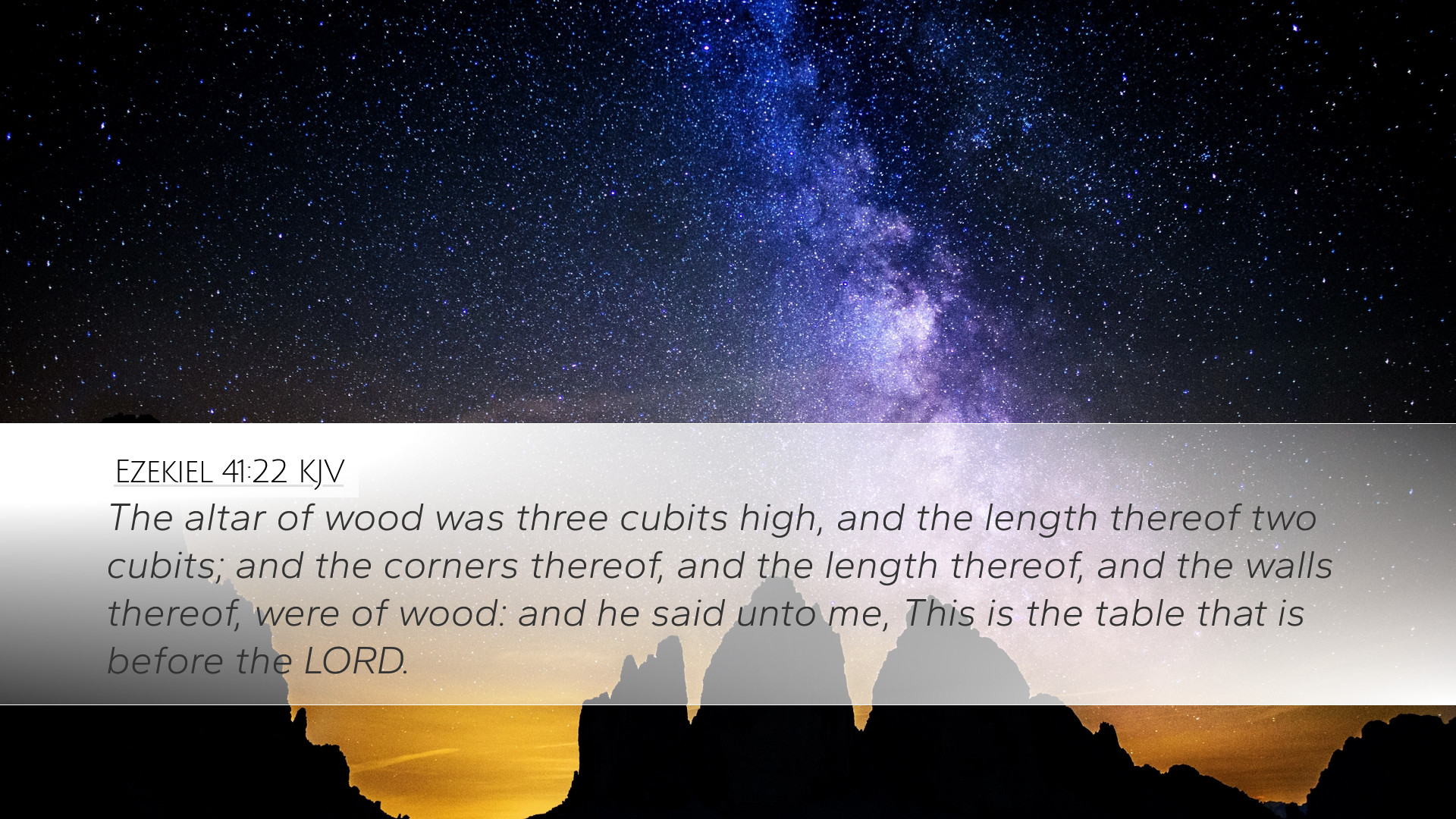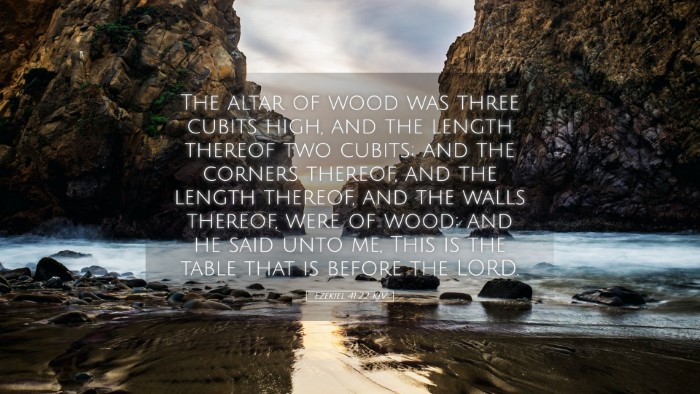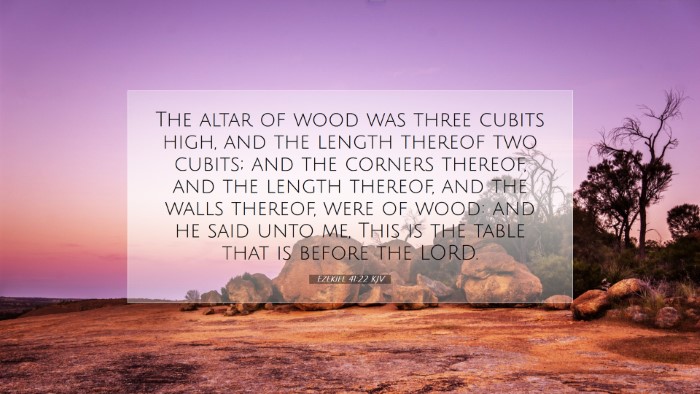Bible Commentary on Ezekiel 41:22
Ezekiel 41:22: "The altar of wood was three cubits high, and the length thereof two cubits; and the corners thereof, and the length thereof, and the walls thereof, were of wood: and he said unto me, This is the table that is before the Lord."
Introduction
This verse presents a description of the altar in the temple vision given to Ezekiel. The imagery is rich with theological significance and reflects the nature of worship and the presence of God. Various public domain commentaries provide insightful reflections on this scripture, bringing to light the importance of the altar, its specifications, and its implications for worship.
Historical Context
The Book of Ezekiel was written during a time of exile for the Israelites. With Jerusalem destroyed and the temple in ruins, Ezekiel’s vision of a new temple represents hope and the restoration of their worship practices. Understanding the significance of the altar is crucial as it signifies both a place of offering and communion with God.
Matthew Henry's Commentary
Matthew Henry emphasizes the importance of the altar as a symbol of Christ's sacrifice. He notes that the wooden altar, though simple in material, speaks to the accessibility of God. Just as the altar serves as a meeting point between God and humanity, so too does Christ serve as the ultimate mediator:
- Symbol of Sacrifice: The altar serves as a reminder of the sacrifices made for sin, which ultimately foreshadow the sacrifice of Christ.
- Divine Presence: Henry points out that the altar being referred to as "the table that is before the Lord" indicates a divine invitation for worship and communion.
Albert Barnes’ Commentary
Albert Barnes provides a detailed analysis of the measurements and structure of the altar. He draws attention to its height and dimensions to illustrate the importance of proper worship:
- Height of Holiness: The specified height of three cubits symbolizes the elevation of God’s holiness above human understanding and approach.
- Material Significance: The choice of wood may demonstrate humility and the need for interpersonal connection with the divine.
Adam Clarke’s Commentary
Adam Clarke adds depth by exploring the typological meanings associated with the altar. He links the physical altar to spiritual truths:
- Table of the Lord: Clarke asserts that the altar serves as a 'table' signifying nourishment that believers receive through communion with God.
- Invitation to Worship: He encourages believers to recognize the invitation to present their offerings to God through the ‘table’ of the altar.
Theological Implications
This verse holds profound theological significance for both worshippers and theologians. The altar represents a central element of worship and intercession:
- Intercessory Role: The altar signifies the place where intercessors plead for mercy and grace on behalf of the people.
- Communal Aspect: It serves as a communal meeting point where God’s people come together for corporate worship.
Application for Today's Worship
The insights gleaned from this passage guide contemporary worship practices:
- Centrality of the Altar: Churches today should maintain the altar as a focal point of worship, symbolically connecting believers with the divine.
- Offering Lives: Just as offerings were presented at the altar, modern believers are called to offer their lives as living sacrifices, holy and acceptable to God.
Conclusion
The verse Ezekiel 41:22 serves as a profound reminder of God's desire for communion with humanity. Through the altar, a symbol of Christ's sacrifice, believers are invited into a relationship defined by worship and gratitude. Pastors, students, and theologians alike find in this scripture a rich source of hope and reflection as they contemplate the nature of God’s presence in their lives.


